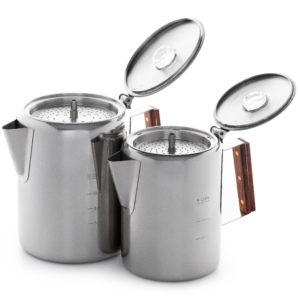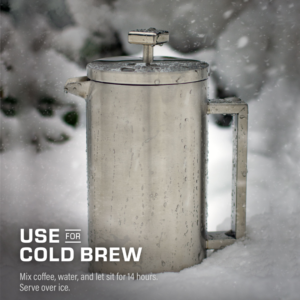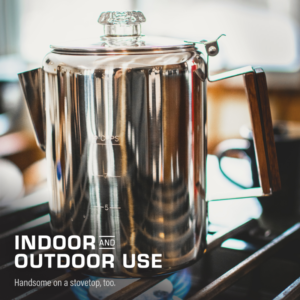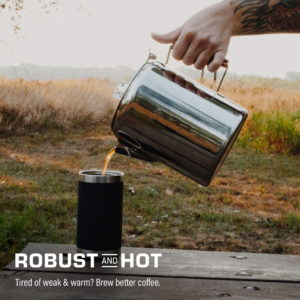What is Percolator Coffee – Stovetop Coffee Percolator
Home > Blog > Brewmaster Tips > Coffee Brewing Methods > What is Percolator Coffee – Stovetop Coffee Percolator
What is a Coffee Percolator – About The Stovetop Coffee Percolator
A stovetop coffee percolator is a coffee maker that can brew with either an open flame or a hot plate. Stovetop coffee percolators do not need a kettle to boil water, since both the water and coffee grounds are contained within the stovetop coffee percolator.
What makes a stovetop coffee percolator different from other brewing devices, is how it cycles the water repeatedly through the coffee grounds. Unlike drip coffee makers which pass the water through the grounds only one time. A stovetop coffee percolator will brew for longer, and percolator coffee is generally stronger coffee than drip coffee.
Only use the best coffee percolator stove top devices, since the brewing method can get very very hot. There are three main parts of a stovetop coffee percolator: (1) the base, (2) the basket, and (3) the top. The base is filled with water, and the basket is filled with coffee grounds. As the stovetop coffee percolator brews, hot water is forced upward to the top and falls down into the basket, soaking the grounds with hot water. The brewed coffee then falls back into the base, and the cycle continues. As the percolator coffee boils and brews back into the coffee grounds.
Every stovetop coffee percolator in the COLETTI line is made with stainless steel, while the percolator top (a.k.a globe) is all glass. We believe any lesser materials, plastic or tin, would be a detriment to the user, since stovetop coffee percolators get so hot. You don’t want to risk any plastic leaching into your percolator coffee.
Types of Coffee Percolators
- Classic Stovetop
- Coffee Percolator
- Electric Percolator
- Moka Pot
- Siphon Brewers
- Filter Drip
Percolation is defined as the movement of water (or other liquid) through a filter, so the common drip coffee brewer is technically a percolator. When we think of traditional percolator coffee we typically imagine (1) stovetop coffee percolators, (2) moka pots, or (3) siphon brewers. A variation of the classic stovetop coffee percolator, the electric percolator has recently become popularized.
In the 1880s, an Illinois farmer named Hanson Goodrich invented the first coffee percolator. Hanson’s stovetop coffee percolator was preceded by the siphon brewer by nearly 40 years. The century after the percolator coffee was popularized and patented, two new brewing methods were developed.
In 1908, German inventor Amalie Auguste Melitta Bentz would invent the paper coffee filter brewing system. This brewing method became popularized and commercialized in the 1970s, with the widespread release of the electric coffee pot. Today, the paper coffee filter brewing method is still making coffee in homes and diners all over the world.
In 1933, Alfonso Bialetti, Italian engineer, designed what would become the moka pot. Dubbed the stovetop espresso maker, Bialetti’s invention made the popular Italian instant coffee method accessible to regular family households.
How do Stovetop Coffee Makers Work
The stovetop coffee percolator utilizes its unique design to retain heat and channel boiling water to soak coffee grounds. The basic components of a stovetop coffee percolator are:
- The Percolator Base
- The Coffee Grounds Basket
- The Stem
- The Top
The “Top” of a stovetop coffee percolator is specifically important to the brewing process since the boiling water continually comes in contact with the “Top.” When the hot water collides with the Top, the hot water is spread across the coffee grounds in the “Basket.” These grounds will soak with hot water and pass through the filter at the bottom of the basket. The newly brewed coffee is then returned to the “Percolator Base.”
The percolator base retains heat, and boils the percolator coffee back into the coffee grounds basket. The “Stem” that connects the percolator base and coffee grounds basket delivers the boiling percolator coffee back to the top of the stovetop coffee percolator, re-soaking the coffee grounds.
The continuous cycle of brewed coffee boiling and re-engaging the coffee grounds is the hallmark of the stovetop coffee percolator system. Similarly electric coffee percolators achieve the same effect while providing their own heat.
Does Percolator Coffee Taste Better
“Better,” when it comes to coffee boils down to personal preference. But we can definitively say that percolator coffee is generally “bolder” and “stronger” than coffee brewed through drip paper, siphon, or moka pot brewing methods. Many coffee drinkers would agree that percolator coffee will have a stronger flavor extracted from the coffee grounds than the aforementioned brewing methods.
The flavor and boldness of percolator coffee rivals that of moka pot or espresso coffee, although a stovetop coffee percolator allows you to continually brew the coffee in the grounds over a period of time. While an espresso machine quickly presses the hot water through the coffee grounds.
We recommend using a stovetop coffee percolator when you have the time for a slightly more involved brewing process. The stovetop coffee percolator brewing method is between the espresso and drip brewing methods on a number of scales. Such as, difficulty mastering and time spent brewing. While percolator coffee is as bold or even bolder than espresso coffee.
Is Percolator Coffee Good or Bad for You
As long as you brew with a coffee filter, percolator coffee is as good for you as any other brewing method. Stovetop coffee percolators brew very hot and continually boil the brewed coffee. This makes for a very sanitary and clean coffee brewing method.
The concern comes from the high levels of extraction stovetop coffee percolators allow for. Since percolator coffee continually cycles through the coffee grounds. Extracting more coffee each time, increasing the coffee extract saturation of the brewed coffee. Overly extracted percolator coffee is very bitter and acidic.
Is Percolator Coffee Unhealthy
The original or classic way of brewing percolator coffee was notebally filterless. There has been some research that links high cholesterol and cardiovascular diseases to filterless coffee. Although, the same research team is on record noting that weight control and exercise play an even greater role for the reported health risks.
This, along with the caution of over extracting your coffee contribute to the risks of percolator coffee being either high in cholesterol or acidity. So as long as you’re brewing consistently, with great equipment. The percolator coffee you brew can be healthier and bolder than any other brewing method.
